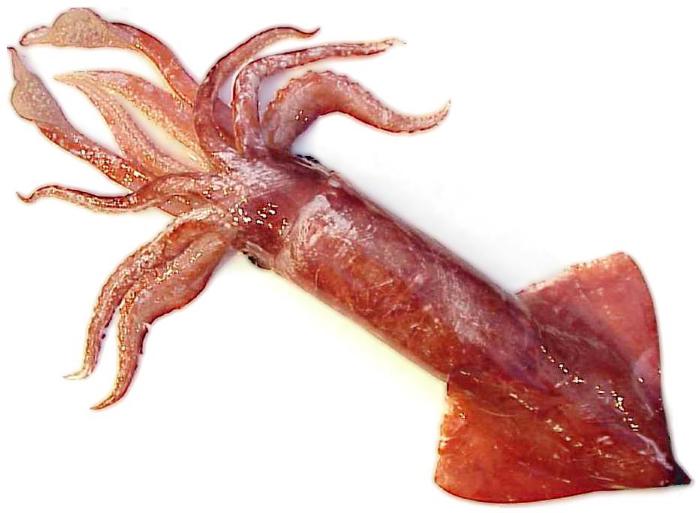Squid — Amikuruaq (N), Utguiruaq (S)

Squid, with their streamlined bodies and tentacled appendages, are cephalopods, related to the octopus. They are abundant in the Gulf of Alaska, where more than fifteen species of squid are known to thrive and others have moved north with recent changes in ocean environments. Aggressive predators, squid swim by propulsion, pulling water in and out of their bodies.
Around Kodiak, squid tend to school in the pelagic water over the outer continental shelf and slope. One of the common varieties, and the most economically important species at present, is the commander squid. Also known as the magister armhook squid (Berryteuthis magister), this medium-sized squid grows to about sixteen inches long and weighs roughly four and a half pounds. There is currently no commercial squid fishery in Alaska, although shrimp and finfish trawlers take squid incidentally. Both recreational and commercial halibut fishermen use squid as bait.
The Alutiiq words for squid—amikuruaq in the northern Kodiak way of speaking or utguiruaq in the southern Kodiak way of speaking—literally mean “like an octopus.” These are new words, coined recently by the members of the Kodiak Alutiiq New Words Council. Kodiak Elders do not recall harvesting squid, seeing it harvested in their youth, or eating the animals. However, because calamari, the Italian term for squid, is now served in local restaurants, many Alutiiq people have learned to enjoy this seafood. Calamari has a mild seafood taste, one that seafood lovers enjoy. Cooked correctly, the meat is sweet and tender. Elders particularly like eating calamari served in rings because the animal is more identifiable.
